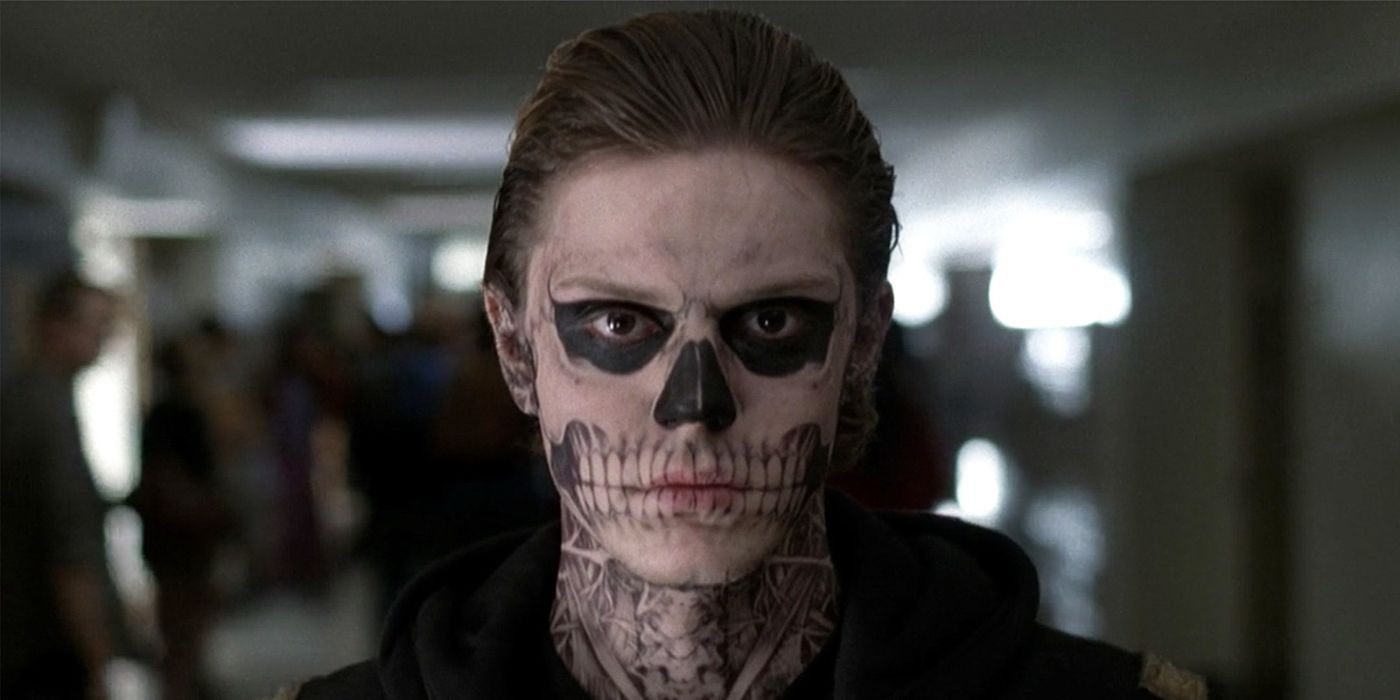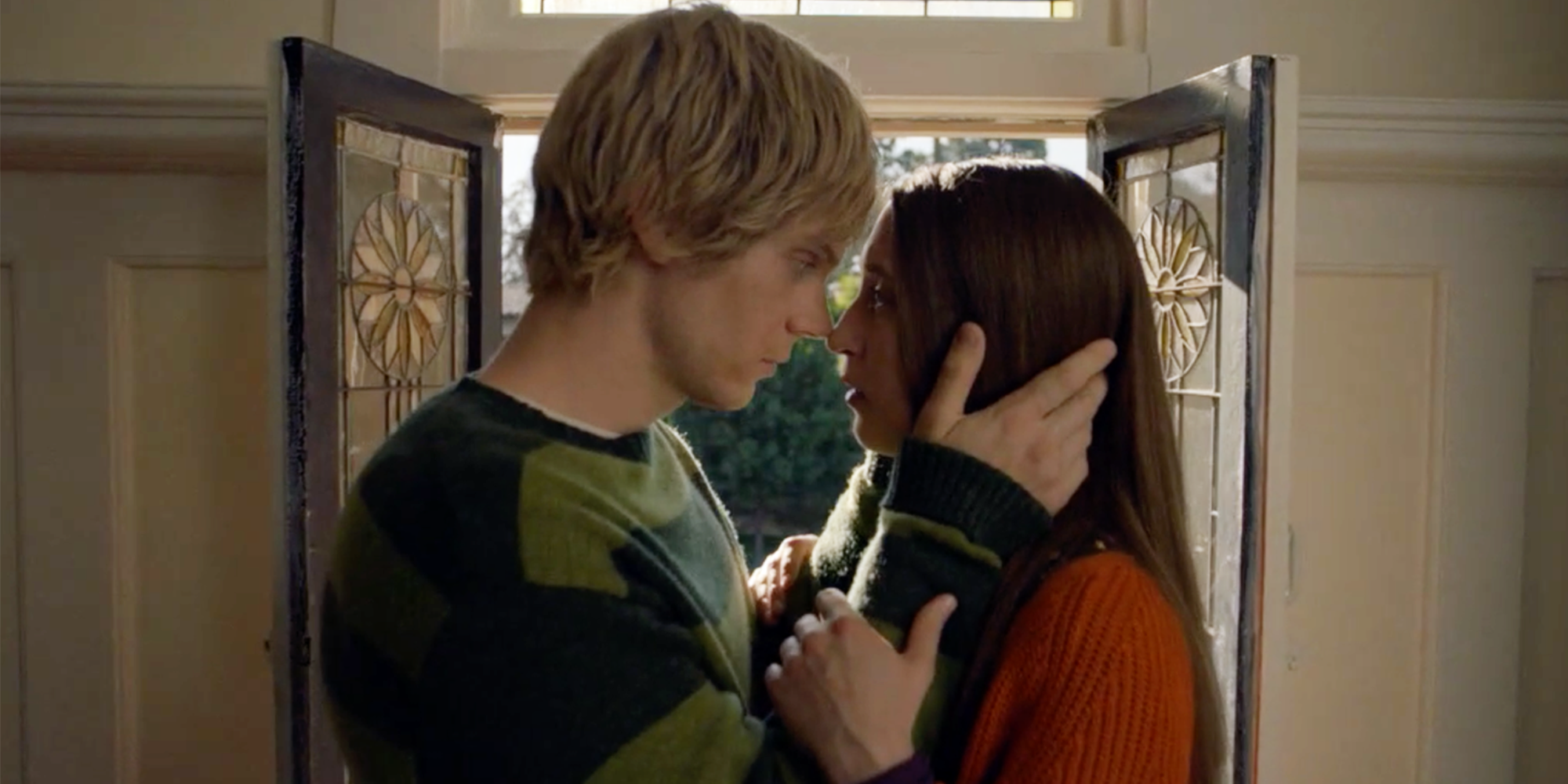Tate Langdon may have been American Horror Story's first antihero, but his story is far too controversial now. It's been nearly 10 years since American Horror Story: Murder House aired and a lot has changed in society since then. AHS tends to push the envelope with its subject matter, but Tate's storyline is simply something that would not be acceptable today and upon looking back, it's clear to see why.
Murder House follows Ben, Vivien, and Violet Harmon as they move into a new home for a fresh start. Little do they know, that home is filled to the brim with vengeful spirits. One of those ghosts is Tate Langdon (Evan Peters), the angsty teen who lived next door during his previous life. After she meets Tate, Violet falls for him and the two begin a romantic relationship.
Tate and Violet's love story is meant to be a beautifully tragic one. Both teens are deeply misunderstood. However, the show eventually reveals that Tate's emotional exterior runs deeper than just typical teen angst. When he was alive, he brought a gun to school and opened fire on his classmates, killing some in the process. But Violet loves him anyway. As the season progresses, Violet learns more about Tate's background. She eventually tells him she loves him, but can't forgive him for things in his past. Murder House then attempts to make Tate a sweet, romantic figure when he tells Violet he will wait forever for her. Yet, based on his past and current actions—which involve sexually assaulting Violet's mother—the "misunderstood" bad boy becomes wholly irredeemable.
American Horror Story missed the mark with Tate's storyline. As Murder House was its debut season, creator Ryan Murphy and his team tried hard to be edgy and scary. Mass shootings are a common fear, especially among Americans, so it's fair game to explore within the confines of a horror series. Between shootings at places such as schools, concerts, and movie theaters, the fear of being involved in one of these tragic events became a reality for many over the last decade. With mass shootings becoming frighteningly and increasingly common on American soil, respectfully depicting them in movies and television shows is often challenging, but possible. However, very few have gotten the balance right.
Murder House did more than just depict a school shooting in poor taste — it made the shooter into a tragic hero. Revealing his past as a school shooter was a major plot twist in Murder House. During most of the season, Tate has no clue he's dead. He definitely doesn't remember opening fire at his school. This is the first of many elements that would no longer be acceptable today — doing this removed Tate from the tragedy, thereby taking away some of his blame. After the plethora of mass shooting seen in the past decade, this would be truly unacceptable to depict on TV. However, it would still be possible to include this storyline if the show chose to paint Tate as a villain wholeheartedly, or even one who—in death—found reasons to truly atone for his horrible actions while he was alive.
After his past is revealed, AHS spends the remainder of the season trying to redeem Tate. The ghosts of his victims are shown tormenting him, which is meant to be cruel since he doesn't remember what he did. Tate is also shown to be patient, gentle, and loving with Violet. How could the audience remain angry with someone like that? Looking back at that with a modern-day lens is difficult to watch. It actually would have better been in American Horror Story's tone to let Tate sit with his mistakes, instead of eventually getting the girl in AHS: Apocalypse. Today, Tate's character could still be a school shooter and even draw empathy from the viewer, but would need to be painted in a far less sympathetic light, and definitely detached from the storyline about his victims becoming his tormentors altogether.


